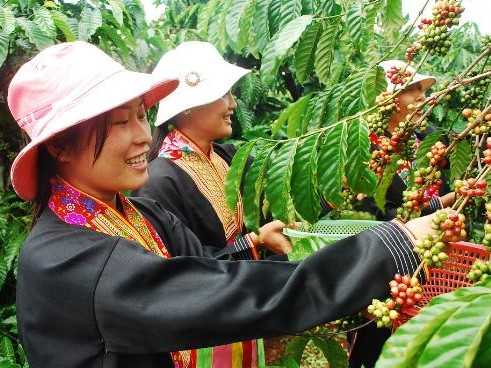Huynh Quoc Thich, deputy director of the Dak Lak Department of Agriculture and Rural Development, said farmers have become more cautious when choosing plants for cultivation because in past years, coffee prices dropped and drought affected crops.
However, Thich said, coffee would remain the main crop of the Central Highlands area, so local authorities should give more guidance to farmers and set up preferential policies for them.
Director of Dak Lak Agribank Tran Dinh Chanh said the bank was willing to give loans to farmers for recultivation, but the bank attracted few farmers because they were no longer interested in planting coffee crops.
Statistics from Agribank in Central Highlands areas showed that they only had about 5,900 customers borrowing VND758 billion (US$33.9 million) to recultivate more than 9,400ha of coffee, whereas their funds for coffee recultivation in the area reached about VND12-15 trillion ($538-672.6 million).
Thich said that in order to make local farmers more interested in planting coffee, the State should have more supportive policies; for instance, giving them preferential interest rates and technical support.
To reduce obstacles, the Ministry of Agriculture and Rural Development (MARD) carried out several measures.
Under the ministry’s plan, provinces would create steering committees to provide guidance and technical training on recultivation to farmers. The committee would conduct research and set up a data base for the work.
Information on processes and procedures for borrowing money from banks would be disseminated widely to farmers, the ministry said.
Statistics from the MARD showed that by the end of last year, more than 61,700ha of coffee in the Central Highlands provinces had been recultivated. Most of the areas were in Lam Dong and Dak Lak provinces.
The Central Highlands provinces planned for about 120,000ha of coffee to be cultivated by 2020. The provinces completed half of the areas needing recultivation as outlined in the schedule















